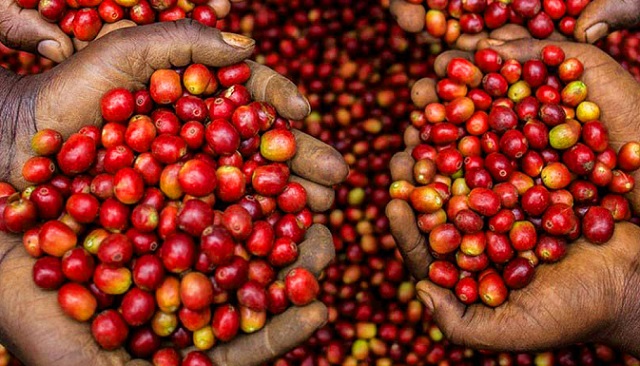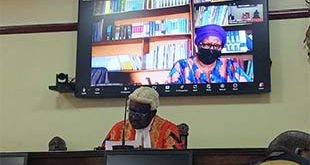
Kampala, Uganda | THE INDEPENDENT | Time is running out first for Uganda to put in place compliance measures with the new European Union regulations against deforestation during coffee production. The EU Deforestation Regulations (EUDR) direct that imports (of about 600 commodities) should bear fruit that they have not been produced after violation of laws, policies, and policies like environmental degradation, child labor, and land grabbing.
For Uganda, the emphasis has been out on coffee because it is their biggest import from the East African country. Uganda also feels pressure regarding coffee because it is her largest commodity export, with the EU accounting for more than half of the market.
“Coffee is vital to Uganda’s economy, employing the value chain; so ensuring that our practices meet international standards is essential to secure this crucial economic driver,” said Jane Nalunga, the Executive Director, of SEATINI (Southern and Eastern Africa Trade Information and Negotiations Institute) Uganda.
Much as the regulations and the December 31, 2024 deadline are both expensive and almost too soon to meet, Nalunga says Uganda and Africa cannot afford to ignore the EU move because it also brings with it the advantage of improved standards. The EU regulations require proof that Ugandan coffee is not contributing to deforestation; this poses a significant challenge, given the need to align with sustainability standards while ensuring coffee industry growth.
“The EU directives may pose challenges, but they also offer Uganda a chance to innovate and strengthen our coffee industry, she said, adding, “By embracing value addition and diversifying our strategies, we can transform these challenges into pathways for economic resilience.”
The engagement organised by SEATINI under the theme: Securing the Future of Africa’s Coffee Trade’’ was aimed at pressing for a faster pace towards compliance with the EU regulations, to avoid an export shock.
Dr. Gerald Kyalo, Director of Development Services at the Uganda Coffee Development Authority agreed with preparedness for the EUDR as the deadline approaches, though, he believes coffee is not a major contributor to environmental degradation.
“It is essential to understand that coffee is not a driver of deforestation in Uganda; data shows that non-compliant plots are minimal, but compliance with EUDR is still necessary, as the EU market is vital for Uganda, with 60-70 percent of our coffee exports going there,” he said.
Kyalo emphasised the importance of coffee saying that ensuring compliance with EUDR will prevent potential economic setbacks and safeguard farmers’ livelihoods. He, however, expressed disappointment with the EU rejection of Uganda’s short-term solutions as they work on the total compliance to the regulations.
“Despite previous suggestions, the EU has not approved a territorial approach for compliance and Uganda must now focus on traceability, including mapping GPS coordinates for coffee farms over 10 acres!” The Coffee Act of 2021 mandates the creation of a National Coffee Register, and according to Kyalo, this register, including GPS coordinates and polygons, is crucial for meeting EUDR requirements and ensuring traceability.
Jonathan Lubega, Program Associate, Agricultural Trade for Rural Transformation said there is no other solution but for the country to comply. “With only a few months remaining, it is imperative to ensure that EU regulations are implemented and thoroughly addressed,” he said, adding, “We respectfully urge both UCDA and the Ministry to prioritize these critical needs.”
On behalf of the Ministry of Trade, Industry, and Cooperatives, Okot Richard Okello, Ass. Commissioner External Trade suggested that growing the African market would be the lasting solution to the challenges of the market. He cited the African Union’s declaration on coffee as a strategic sector which underscores the need for regional value chains to transform the continent and achieve Agenda 2063.
“Promoting coffee consumption within the region through arrangements like EAC and COMESA is vital for expanding market access and driving demand; regional cooperation is the way forward for growing the coffee market,” Okello said.
On the issue of standards, Okello said that to boost coffee production sustainably, Uganda must enhance research and development, and also collaborate with neighboring coffee-growing countries to improve yields and overcome challenges in the coffee sector.
Christine Nakimwero Kaaya, Kiboga District MP accused both the parliament and Government of laxity in responding to the EU requirements. She informed the dialogue of how, together with SEATINI Uganda, they submitted a petition to the Parliament requesting the government to undertake the necessary actions to fast-track efforts to comply with the EUDR regulations.
“Last week, we anticipated that the Speaker would read and address the petition, aligning it with the necessary committees for further consideration,” she lamented. Dock No, the Statistical Coordinator at the International Coffee Organization said if Uganda works on the Certification of Origin, it will ease compliance with the EUDR.
He said the ICO certificate of origin complements the EU directives by offering essential due diligence information, including geographic and production details, ensuring compliance with global standards. “To avoid redundancy, the EU directives utilize the existing certificate of origin framework for due diligence, ensuring efficiency and compliance in coffee trade practices,” said No.
Coffee exports from Uganda totaled six million bags last year, earning the country more than 900 million dollars (almost 3.4 trillion shillings)
*****
URN
 The Independent Uganda: You get the Truth we Pay the Price
The Independent Uganda: You get the Truth we Pay the Price


